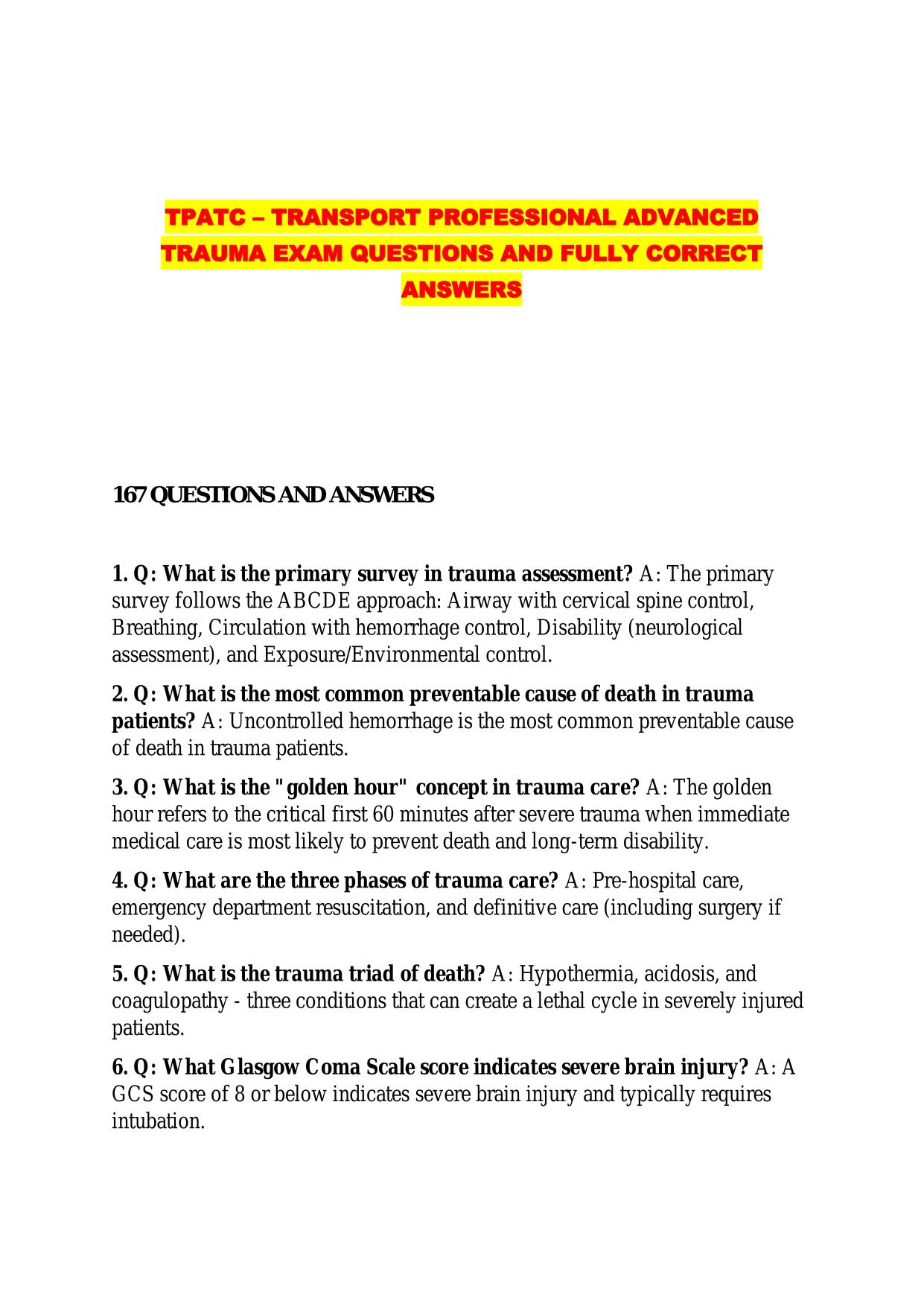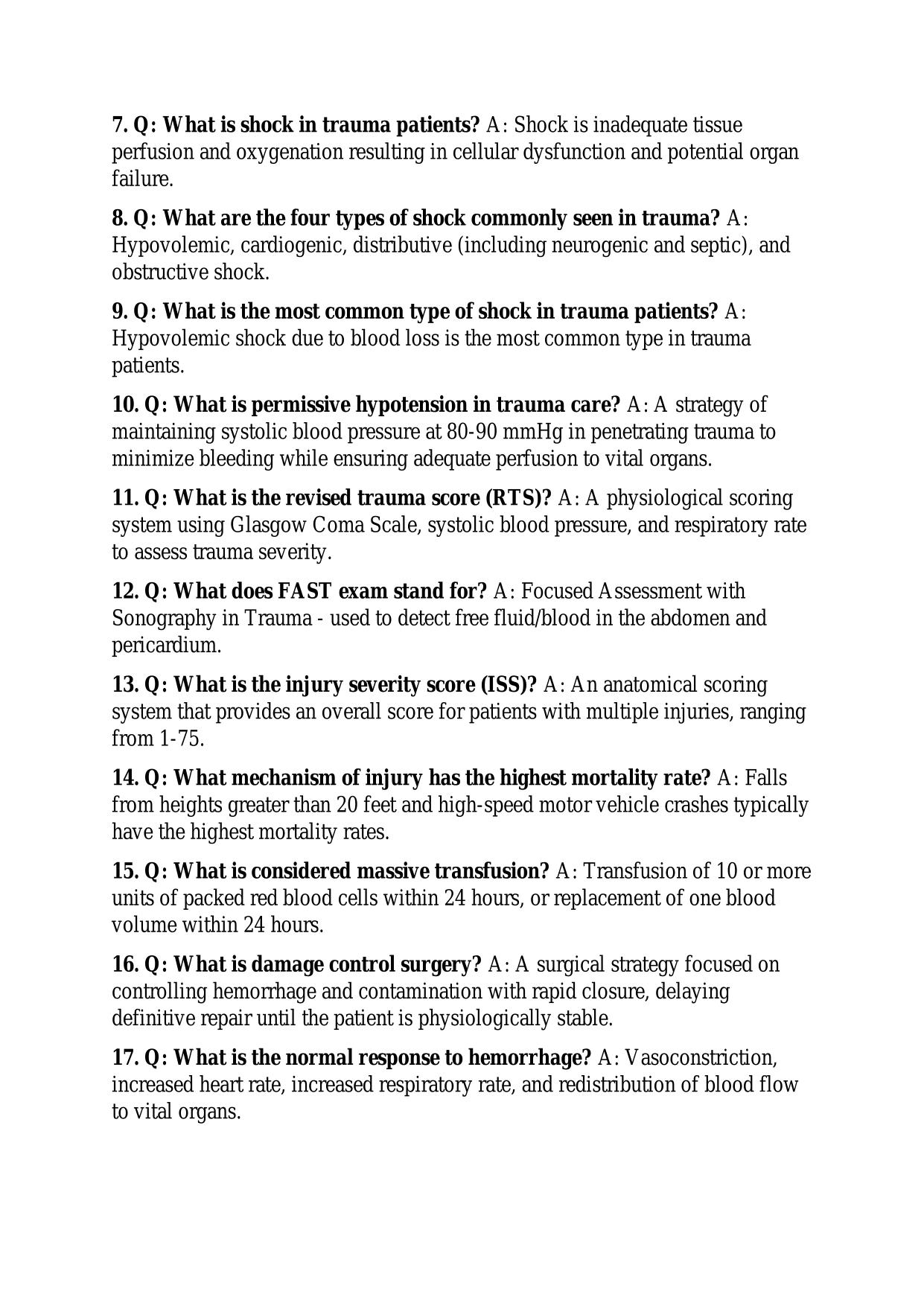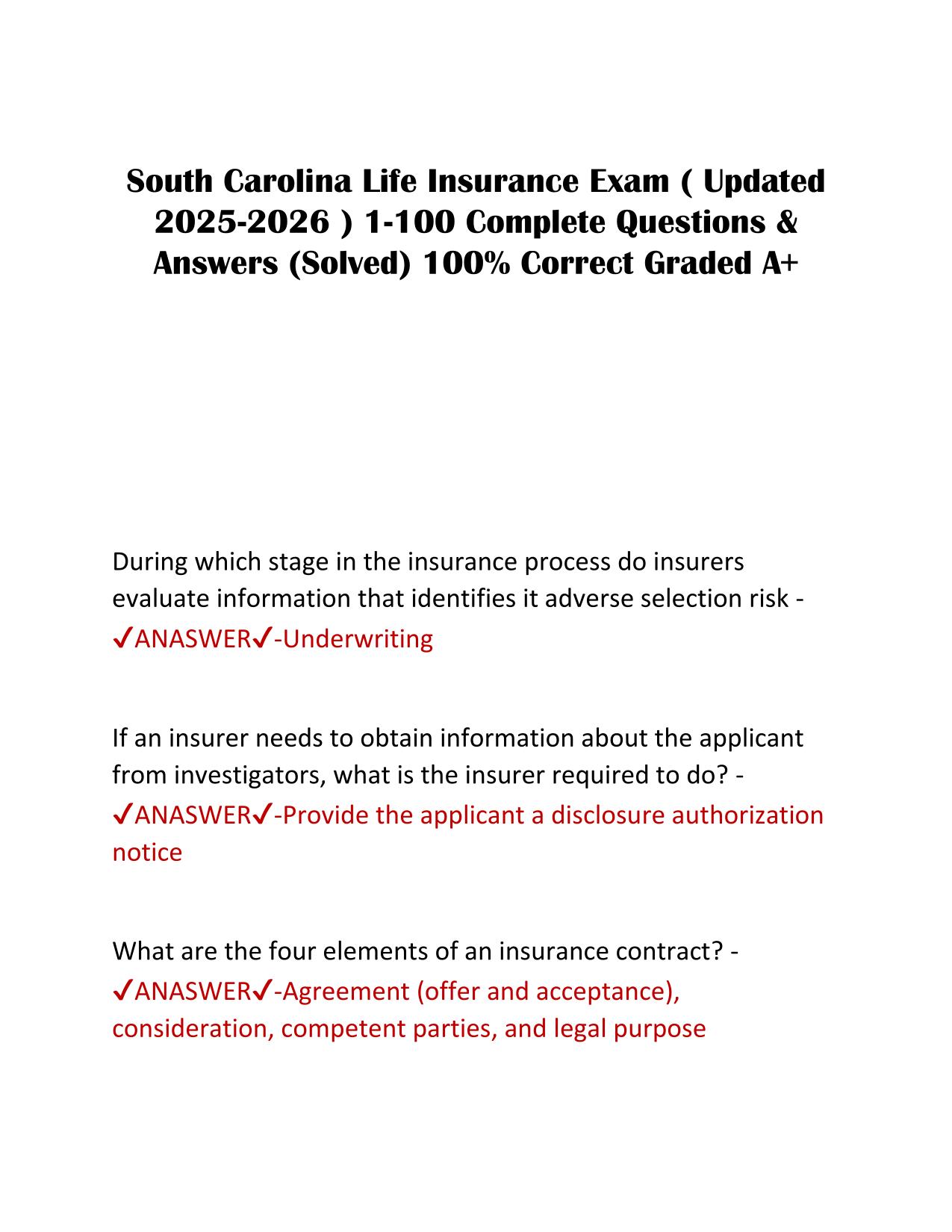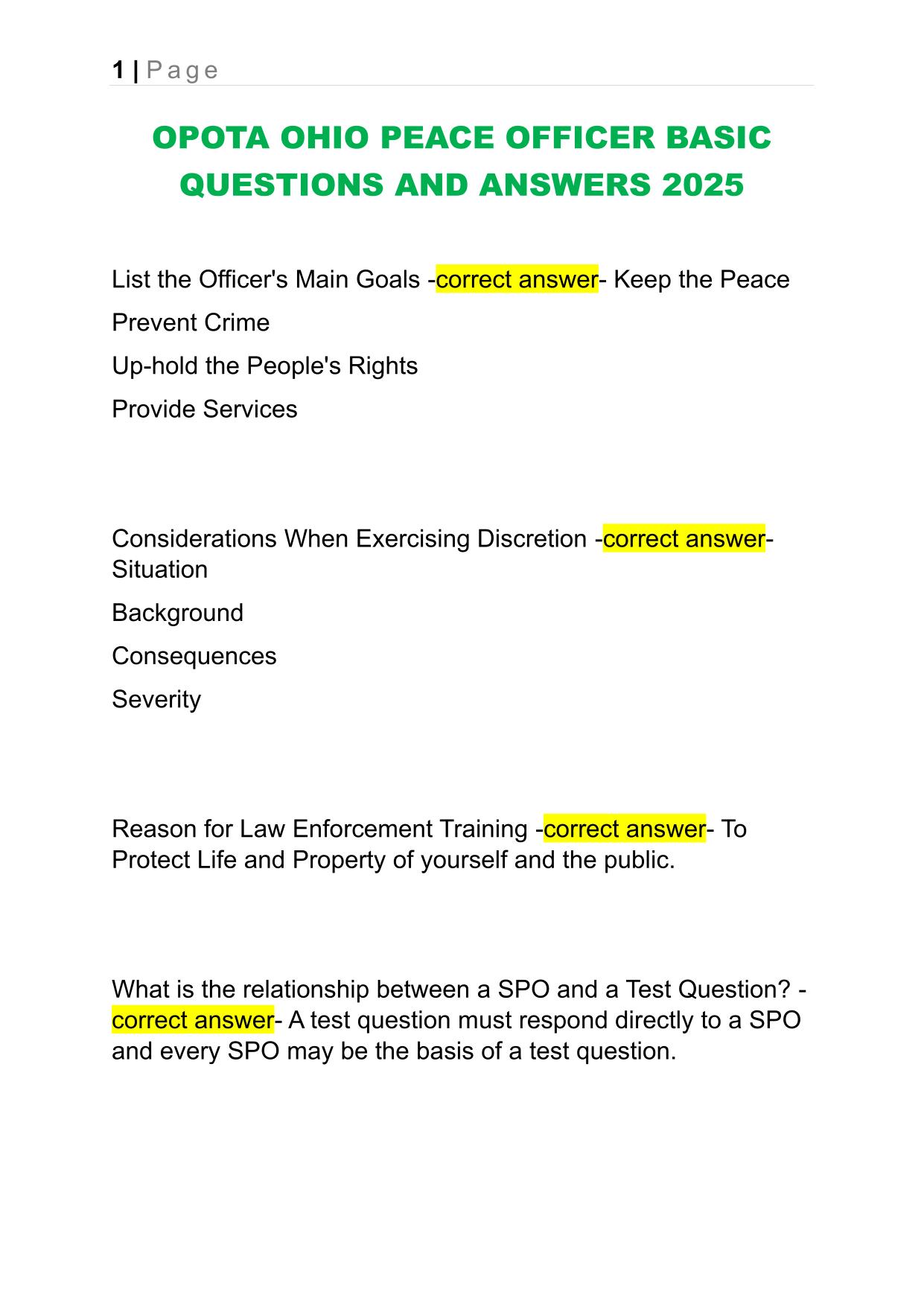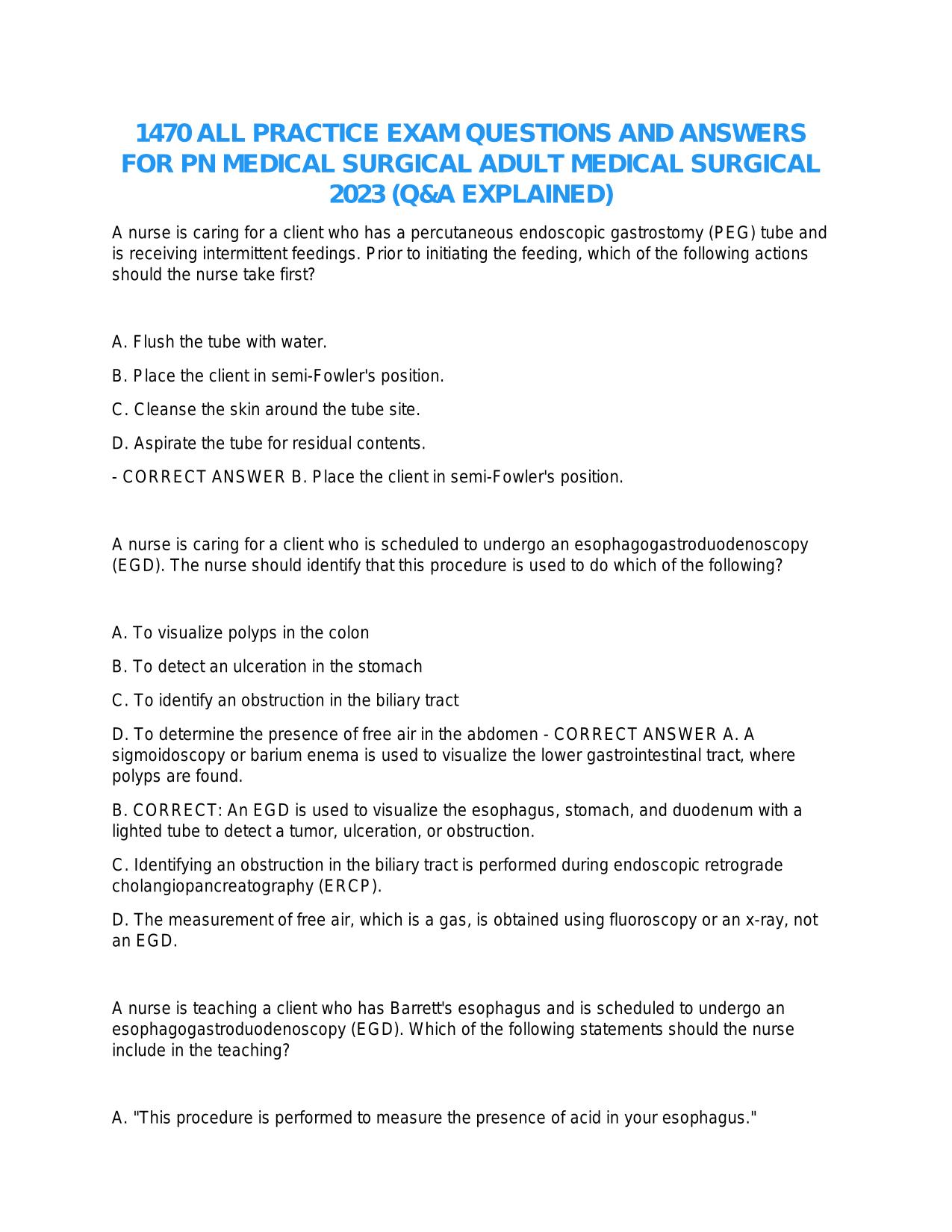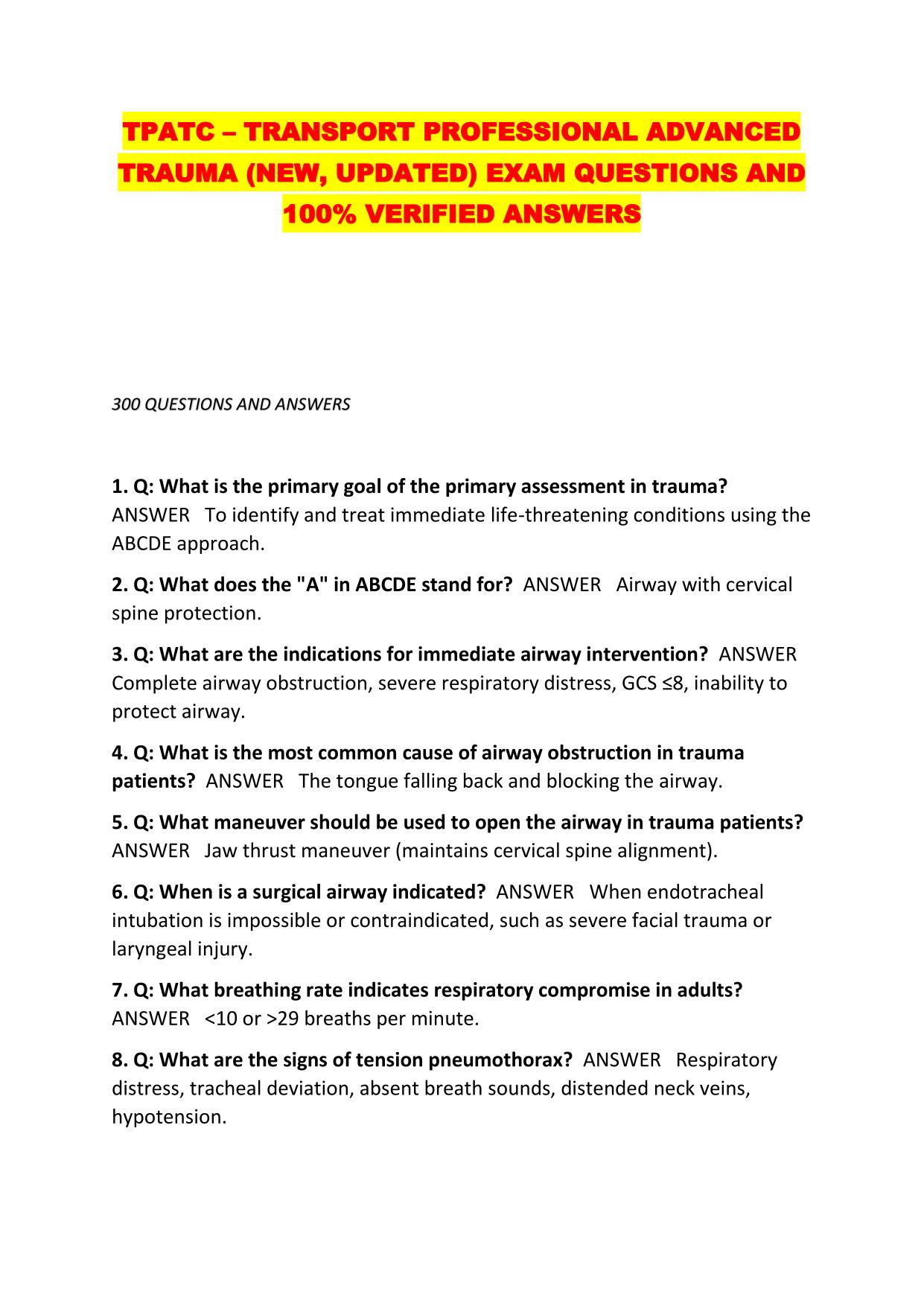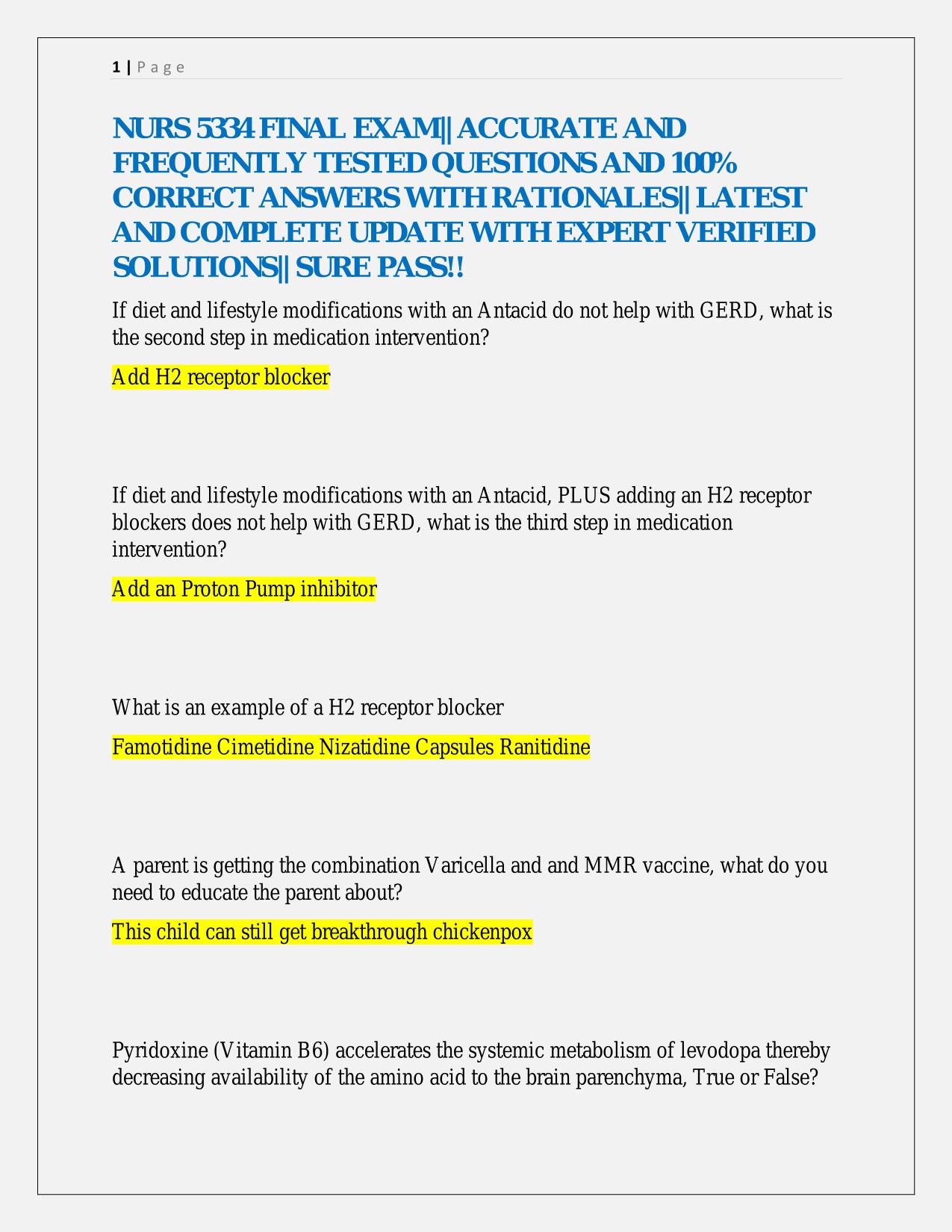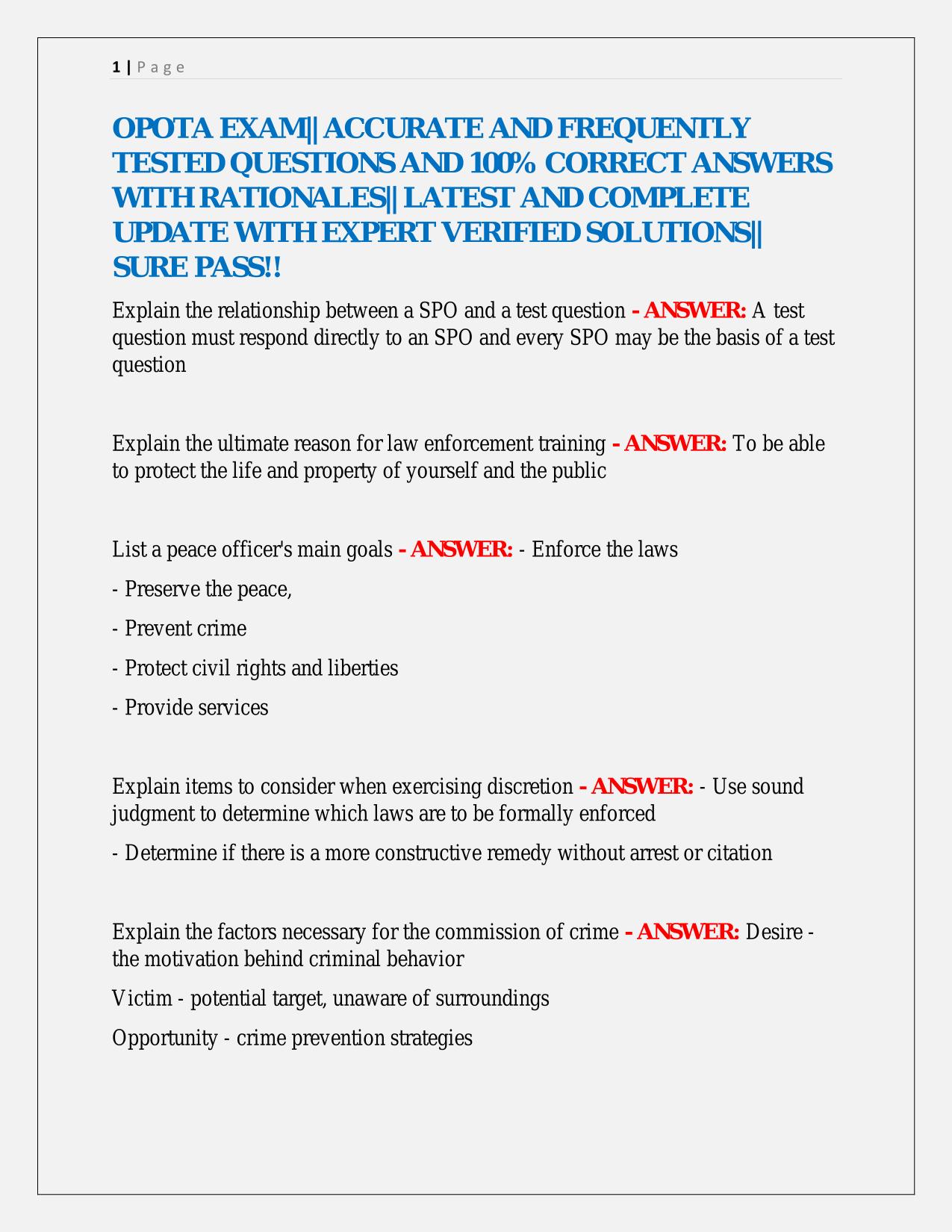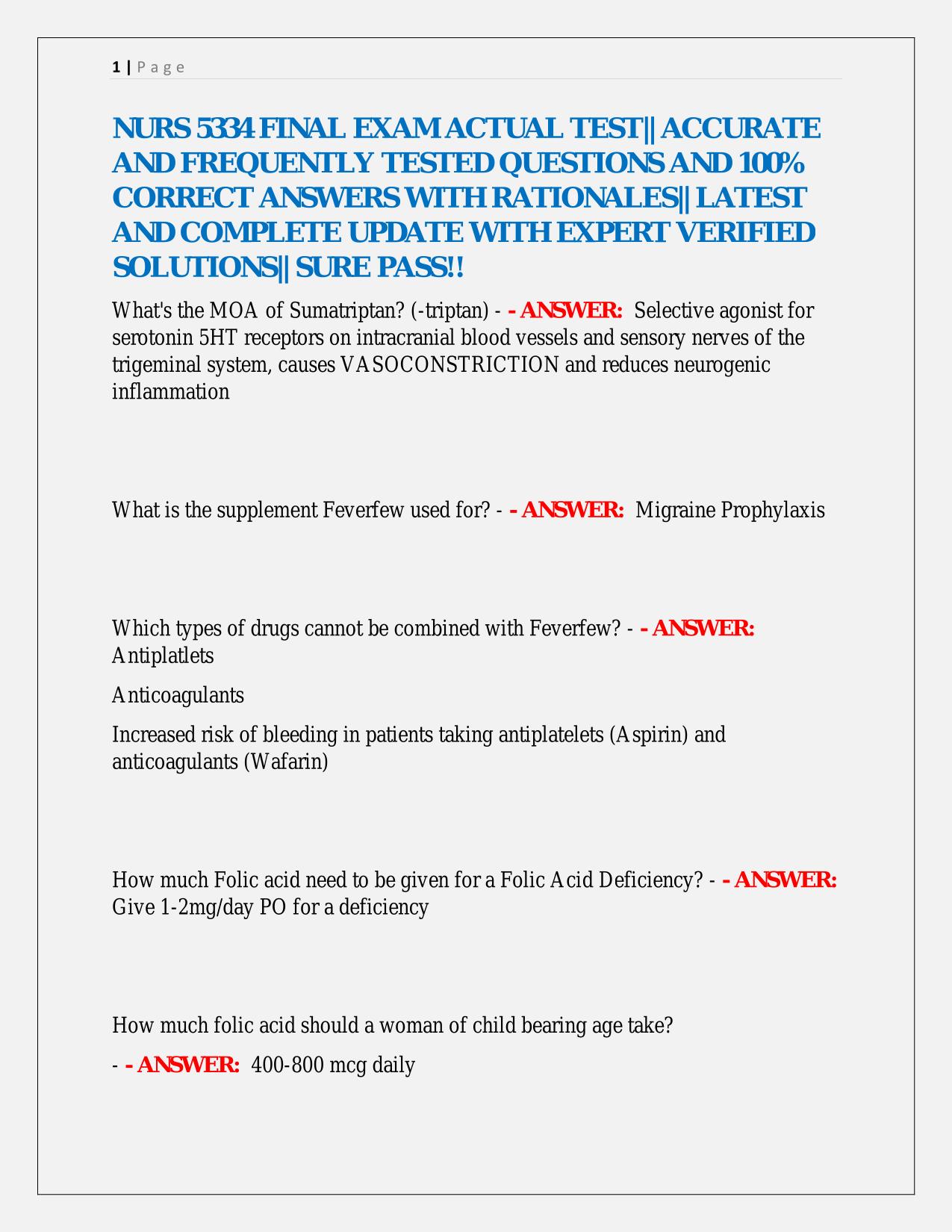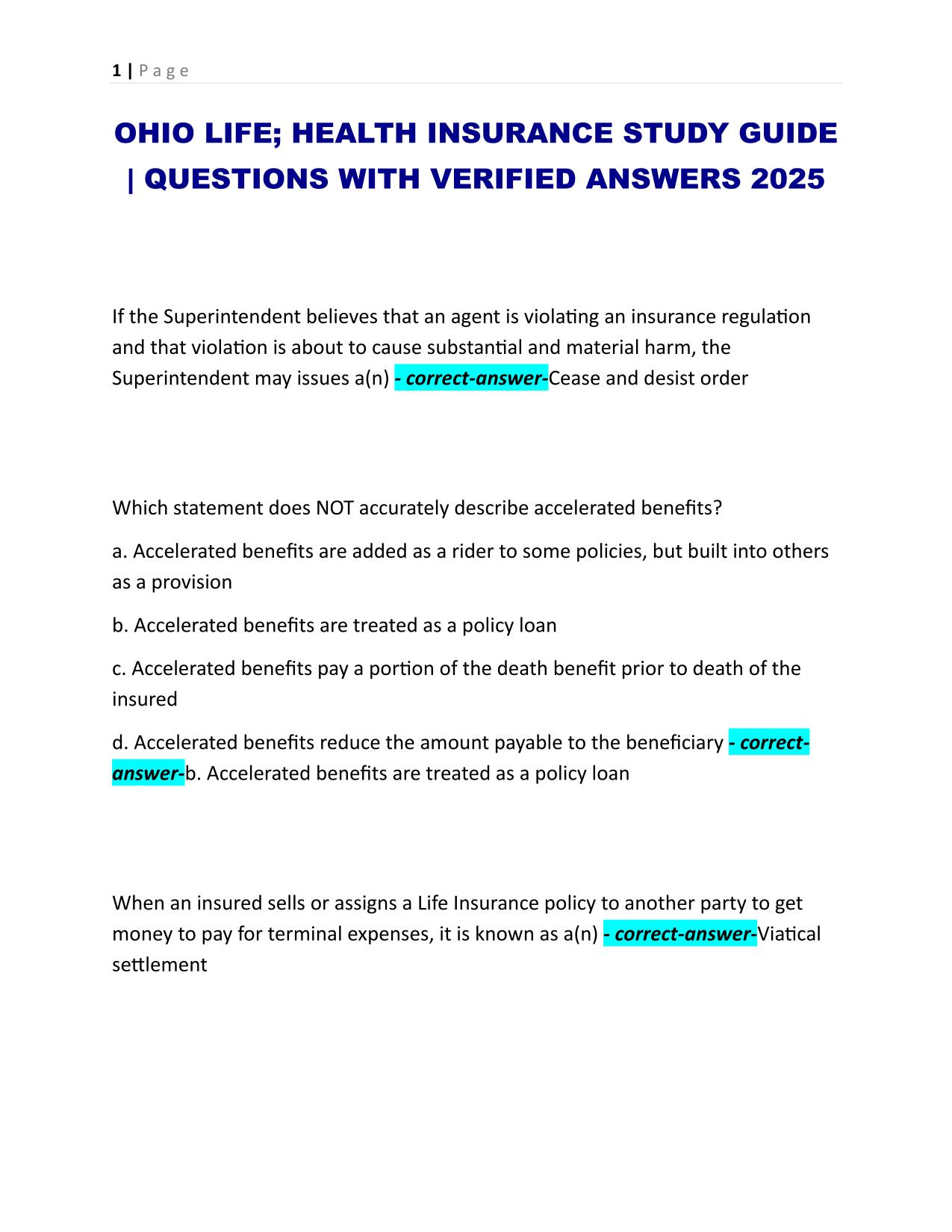TPATC – TRANSPORT PROFESSIONAL ADVANCED TRAUMA EXAM QUESTIONS AND FULLY CORRECT ANSWERS
TPATC – TRANSPORT PROFESSIONAL ADVANCED TRAUMA EXAM QUESTIONS AND FULLY CORRECT ANSWERS
Course:
2025/2026 Tests
Institution:
2025/2026 Tests
TPATC – TRANSPORT PROFESSIONAL ADVANCED TRAUMA EXAM QUESTIONS AND FULLY CORRECT ANSWERS
After purchase, you get:
✅ Instant PDF Download
✅ Verified answer explanations
✅ Refund if not Satisfied
✅ Prepared for 2025/2026 test cycle
Document Information
| Uploaded on: | September 9, 2025 |
| Last updated: | September 9, 2025 |
| Number of pages: | 14 |
| Written in: | 2025/2026 |
| Type: | Exam (elaborations) |
| Contains: | Questions & Answers |
| Tags: | TPATC – TRANSPORT PROFESSIONAL ADVANCED TRAUMA EXAM QUESTIONS AND FULLY CORRECT ANSWERS |
Seller Information

SophiaBennett
Reviews Received
User Reviews (0)
Exam (Elaborations)
$9.50
Bundle Deal! Get all 15 docs for just $24.99
Add to Cart
100% satisfaction guarantee
Refund Upon dissatisfaction
Immediately available after purchase
Available in Both online and PDF
$9.50
| 0 sold
Discover More Resources
Available in a Bundle
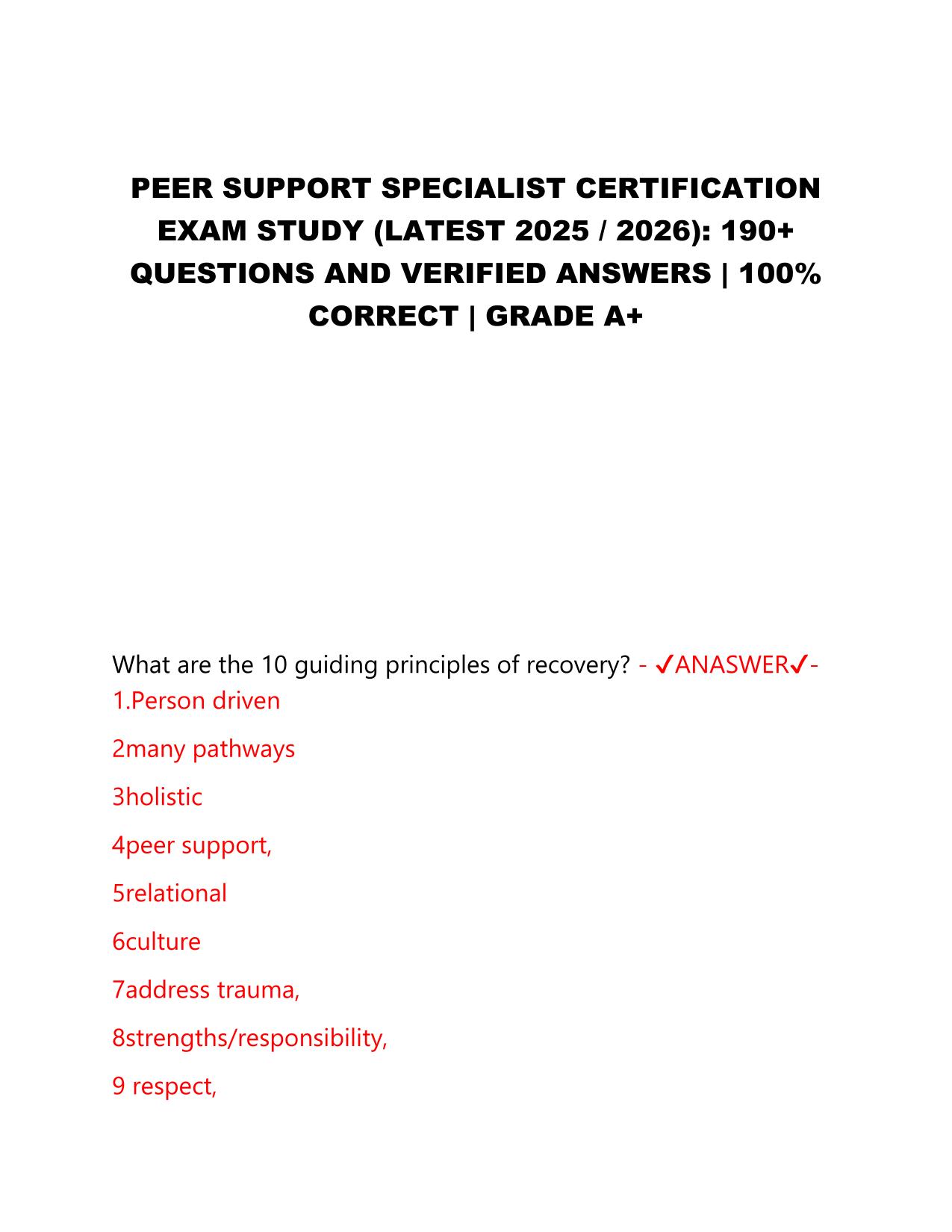
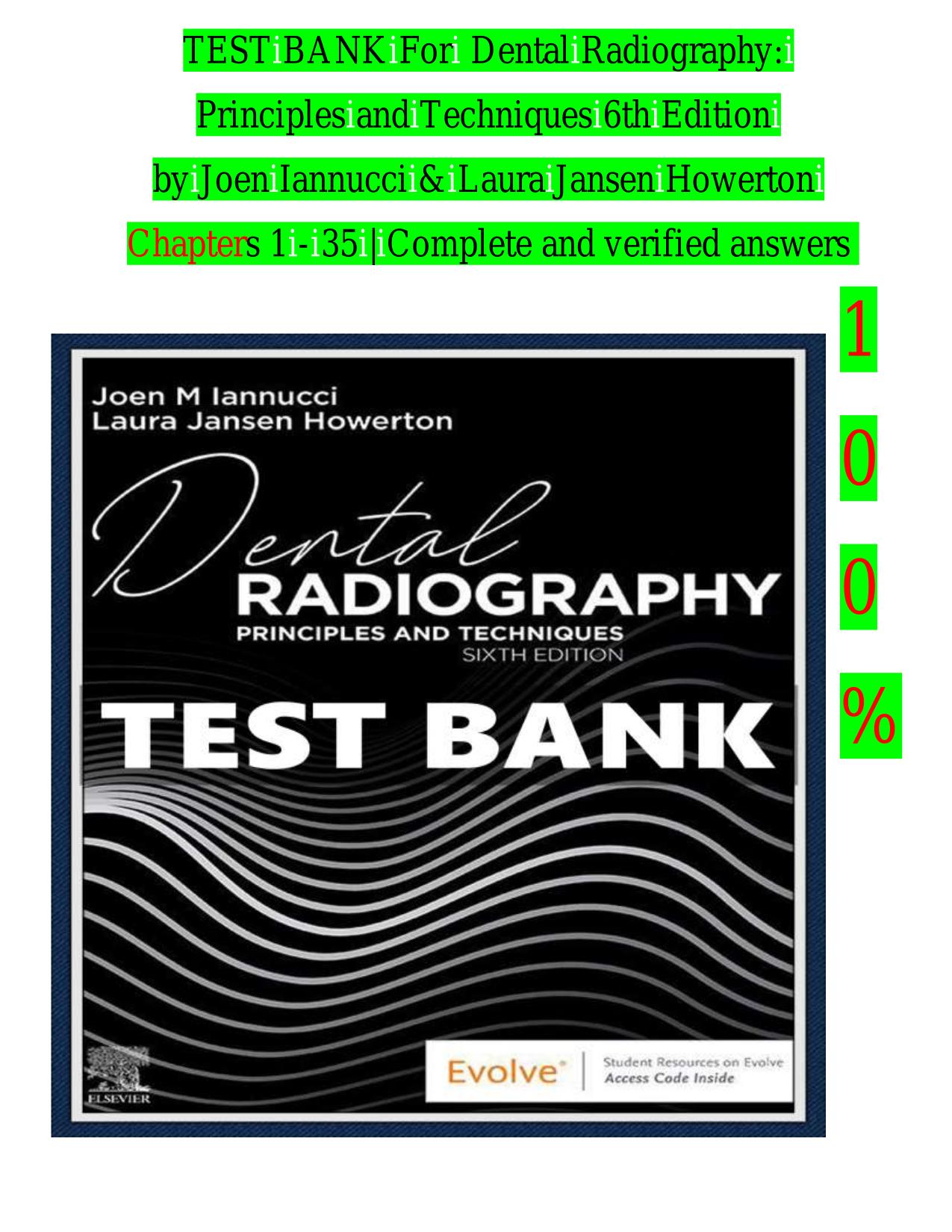
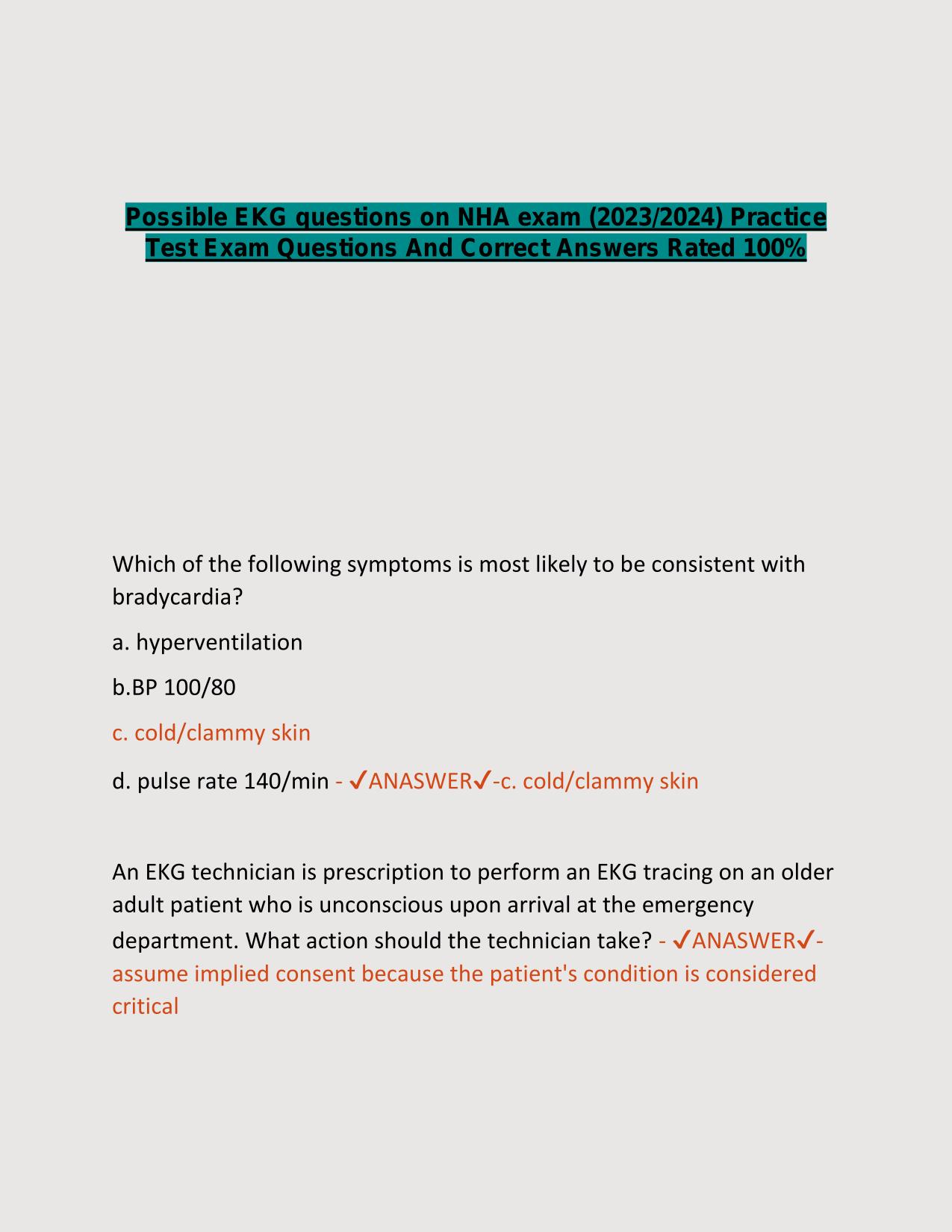
Best Compilation 2025/2026 Bundled Exams QUESTIONS AND ANSWERS |100% Pass |Verified and Updated
Includes 15 Documents
$24.99
Content Preview
TPATC – TRANSPORT PROFESSIONAL ADVANCED TRAUMA EXAM QUESTIONS AND FULLY CORRECT ANSWERS 167 QUESTIONS AND ANSWERS 1. Q: What is the primary survey in trauma assessment? A: The primary survey follows the ABCDE approach: Airway with cervical spine control, Breathing, Circulation with hemorrhage control, Disability (neurological assessment), and Exposure/Environmental control. 2. Q: What is the most common preventable cause of death in trauma patients? A: Uncontrolled hemorrhage is the most common preventable cause of death in trauma patients. 3. Q: What is the "golden hour" concept in trauma care? A: The golden hour refers to the critical first 60 minutes after severe trauma when immediate medical care is most likely to prevent death and long-term disability. 4. Q: What are the three phases of trauma care? A: Pre-hospital care, emergency department resuscitation, and definitive care (including surgery if needed). 5. Q: What is the trauma triad of death? A: Hypothermia, acidosis, and coagulopathy - three conditions that can create a lethal cycle in severely injured patients. 6. Q: What Glasgow Coma Scale score indicates severe brain injury? A: A GCS score of 8 or below indicates severe brain injury and typically requires intubation.
 US
US

